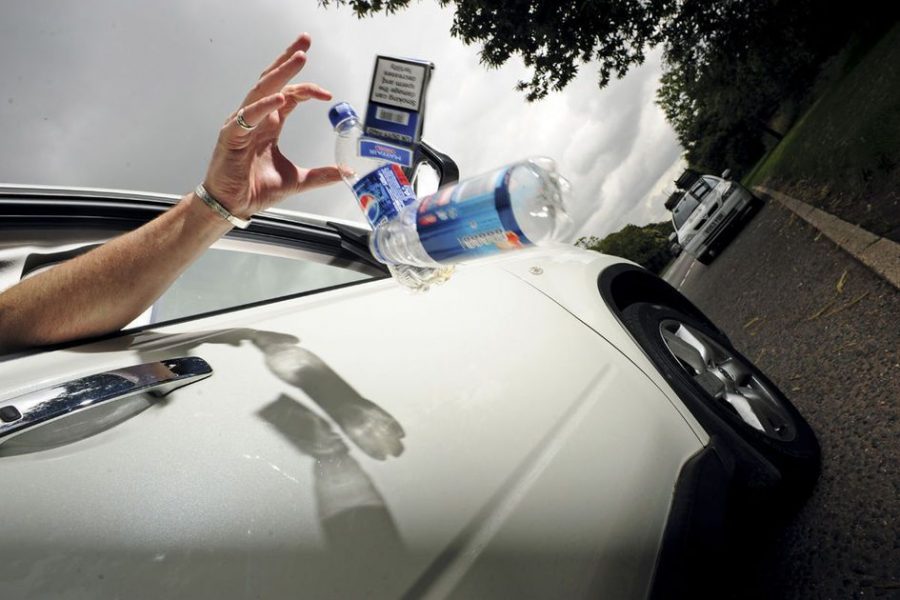The filthy world around us: Why littering laws should be more strict
Our planet is becoming more of a “dump” day by day. Unfortunately, according to an Action for renewables article, 75% of the American population admitted to littering at least once in their life. This shows how most of the American population has adapted to a mindset where it is socially acceptable to litter even though most of us know how wrong and harmful to our environment it is. Most people who carelessly litter justify their action by telling themselves that there is someone else to clean it up. However, some of the smallest things have the biggest impact, which is why littering laws should be more strict.
The trash you fail to properly dispose of usually ends up somewhere it shouldn’t be. Most of the neglected garbage, especially items that contain plastic, end up with the other 5.25 trillion pieces of trash currently polluting the ocean. According to National Geographic, Jenna Jambeck, a University of Georgia environmental engineer, says, “If you have 200 million tons produced every year, researchers will arbitrarily estimate that 10 percent goes into the oceans.” Waste such as metals, plastics, glass, and radioactive drainage is responsible for the killings of hundreds of sea animals each year, and it affects the temperature of oceans, threatening marine life. These frightening numbers show how ignorant most Americans can be. People who carelessly litter fail to realize the world around them. Enforcing littering laws may not be as effective as people think. Educating more people on the effects of littering enacting stricter laws would be more effective.
Littering is harmful for people’s health, but rats, flies and other insects are heavily attracted to garbage. These organisms can bring about major health problems and diseases like malaria, leprosy, anthrax, and more. If trash somehow makes its way into our water systems, effectively contaminating them, it will spread water-borne diseases like dysentery, cholera, and typhoid fever affecting both humans and animals if consumed. Littering can also cause the same type of health problems to animals living in the area. This could eventually lead to overpopulation, underpopulation, or a harmful strike to the food chain.
Littering has such a tremendous impact on the environment, like causing global warming or producing major health issues to all organisms. Everyone should be more strict and educated on how to take care of our world. Pollution can affect the population and our individual health. This gives us an even bigger reason to be more serious about the world around us and how we treat it.

Brianna Wagoner is a first-year writer for the opinion staff. She enjoys reading and writing. Her favorite genre of music is rock and her favorite television...








